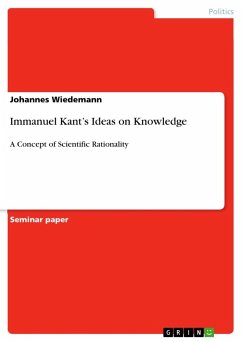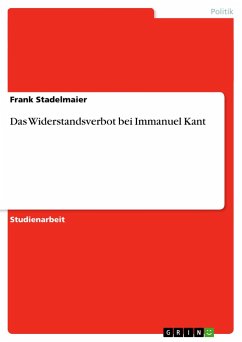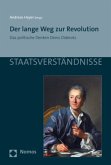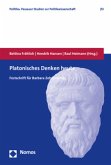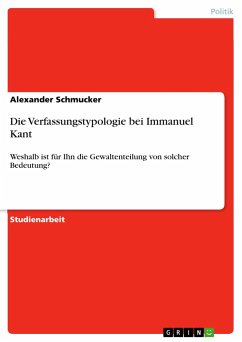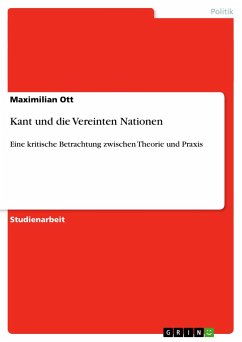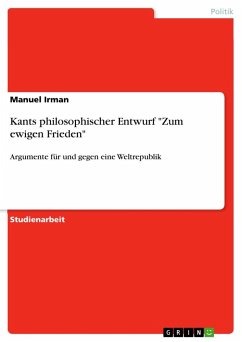Seminar paper from the year 2010 in the subject Politics - Political Theory and the History of Ideas Journal, grade: 2,0, University of Flensburg (International Institute for Management), course: European Ideas, language: English, abstract: If one explores the concept of scientific rationality as it was developed from Aristotle on over Thomas Aquinas to Ludwig Wittgenstein and beyond, one is surprised by the discovery that as all schools or approaches reflecting on knowledge, also the concept of scientific rationality is less a solid set of rules, but more a contested battleground of ideas. What are the conditions of scientific rationality? Is there scientific truth or certainty? Is there something or somebody beyond the boundaries of knowledge? What has Immanuel Kant in stock to contribute to answering these questions? That is the topic addressed in this paper: An outline of Kant s concept of knowledge and a deriving theory of science with a backcloth of recent contributions ofcontemporary scientists, representing the current situation in this discussion. Kant and his thoughts on that matter are not the least suitable for depiction by the fact that his work undertook the mission to sooth the antagonismof rationalism and empiricism in his time which led not only to a synthesis, but to a re-assessment or even transformation of the respective theory as such.

